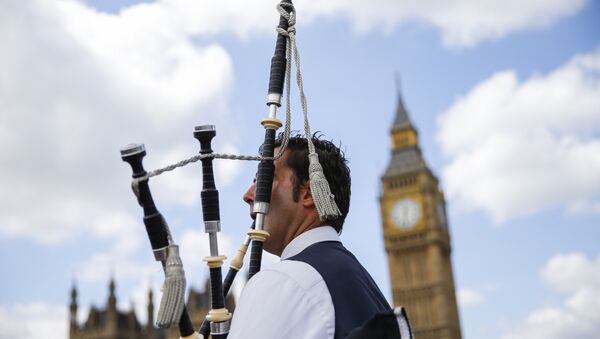A YouGov poll found that only 44 percent of respondents would vote for Scotland to become an independent country if a referendum was held tomorrow, less than the 45 percent who voted in favor of leaving the UK in the September 2014 independence referendum.
The figures also show a dip in support for independence over the past few months, after an August poll found that 46 percent would have voted yes in a referendum.
54% of Scots would oppose an #indyref2 happening before Brexit (apols, last chart showed Aug's results) https://t.co/H6H2EZrea9 pic.twitter.com/s8gwduDRJM
— YouGov (@YouGov) November 30, 2016
Even more worrying for pro-independence political figures in Scotland, 97 percent of people surveyed said they did not think the Scottish government should push for independence within the next two years, with 54 percent saying they would oppose the idea of holding another independence referendum before the UK leaves the EU.
Figures Going Against Expectations
The slump in support for Scottish independence has seemingly gone against pre-Brexit referendum predictions, with former Prime Minister David Cameron among those warning that the UK's decision to leave the EU would likely lead to a spike in support for independence in the overwhelmingly pro-EU Scotland.
"Hey,hey, Theresa May, migrants are here to stay!" #ScotlandStays pic.twitter.com/ZVLjQj8QhC
— Sputnik UK (@SputnikNewsUK) June 29, 2016
The results also come as a blow to the Scottish National Party (SNP) and its leader Nicola Sturgeon, who has been pushing for a second independence referendum in light of the June 23 vote to leave the EU.

A spokesman for the Scottish Conservatives said the poll figures justified the 2014 decision to remain in the UK.
"The standout finding from this poll is the increasing opposition to another referendum on independence, and the drop in support for independence itself now lower than at anytime since the 2014 referendum," a Conservative Party spokesperson told the Scotsman newspaper.
"On the day the SNP finish their so-called listening exercise on independence, it is now time they finally paid attention to what Scotland it saying — no to a second referendum and no to more division, more uncertainty and more rancor."
Why the Slump in Support?
The drop in support for Scottish independence following the Brexit vote has also led to much analysis in the UK, with political figures and the media trying to understand the shift in public opinion.
Many have suggested that despite Scotland overwhelmingly voting to remain in the EU, the uncertainty surrounding Brexit and the UK's future has led many to put their hopes for independence on ice.
Poll figures have also revealed a growing number of Scots who are undecided on the matter of independence in the post-Brexit climate, with analysts predicting that many of them staying on the side of caution and calling for Scotland to remain in the EU for the time being.
While before Brexit, 90 percent of people said they would vote the same way on Scottish independence, that figure is now 80 percent, with suggestions the 'No' side is winning over unconvinced voters.
Analysis of the figures has led commentators to suggest that during the current period of uncertainty, more people believe it's more important to be outside of the EU in a united Britain, rather than taking on the risks of an independent Scotland in the EU.





